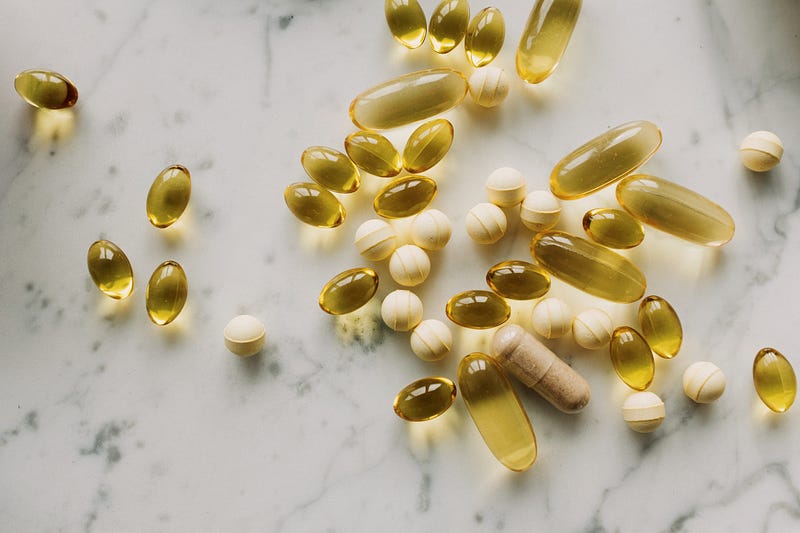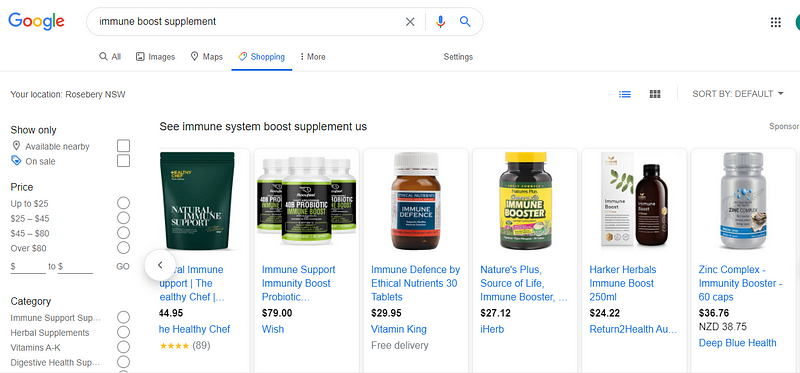The Truth About Supplements and Your Immune System
Written on
Chapter 1: The Illusion of Immune Boosting
In the world of health and wellness, the supplement aisle often appears enchanting. It’s filled with vibrantly packaged bottles, each promising miraculous benefits for your body. From enhancing cognitive function to fortifying your immune system, these products seem to offer an array of solutions.

However, amidst the ongoing uncertainty caused by COVID-19, the allure of supplements has intensified. Sales have soared as many seek reassurance in a bottle, driven by the pervasive fears surrounding health and safety.
Unfortunately, the reality is that most supplements do not possess the magical properties they claim. While individuals with specific vitamin deficiencies may see some benefits from supplementation, the overall evidence supporting their effectiveness in boosting immunity is often lacking.
Section 1.1: A Closer Look at the Claims
It's essential to recognize that while it’s impossible to assert that no supplement could ever benefit your immune system, the supplement industry is notoriously poorly regulated. This leads to a vast array of products, each making similar claims but varying significantly in formulation and effectiveness.
For instance, a quick online search for “immune boost supplement” yields a plethora of options: from zinc and vitamin C combinations to immune-enhancing milkshakes filled with unconventional ingredients.

The diversity in these products is staggering, including everything from elderberries to exotic ingredients like ground kangaroo. However, reviewing the scientific literature on these supplements can be quite overwhelming.
Subsection 1.1.1: The Evidence Behind Popular Ingredients
Take elderberries, for example. They're commonly featured in immunity supplements, yet the supporting evidence is sparse. A few studies funded by the industry suggest minor benefits for colds and flu, but these findings often lack clinical significance. One notable study found that elderberry extract had no real effect on health outcomes for travelers, aside from a slight reduction in symptom severity for those who did catch a cold.
Another widely used ingredient, echinacea, has been scrutinized in reviews. A comprehensive Cochrane analysis concluded that while it may slightly reduce the risk of colds, it offers no significant benefits regarding symptom relief or duration.

Oddly, two of the most well-studied substances for treating colds—zinc and vitamin D—are readily accessible. Evidence suggests that vitamin D can lower the risk of respiratory infections slightly, while zinc may reduce the duration of colds without impacting the likelihood of catching one.
Can you actually boost your immune system? Here's the truth | Body Stuff with Dr. Jen Gunter
This video explores the misconceptions surrounding immune-boosting supplements, emphasizing the importance of understanding what truly affects immune health.
Section 1.2: The Regulatory Landscape
The supplement industry operates with minimal regulation. This allows for a wide range of ingredients—sometimes even obscure or untested— to be marketed with vague claims about their benefits.

Despite this, the absence of substantial evidence does not necessarily imply that these products are ineffective. However, the marketing often oversells their potential, with many supplements advertised as "immune boosters" without any scientific validation.
Chapter 2: The Bottom Line
Ultimately, the consensus is clear: there is limited evidence that supplements significantly enhance immune function. Some may provide minor benefits related to cold symptoms or respiratory infection risk, but these effects are often negligible for the individual.
The 7 MOST Important Nutrients for Your Immune System - YouTube
This video discusses essential nutrients for immune health and their real-world implications, further clarifying the nuanced role of diet in immunity.
It's crucial to remember that like any medical intervention, supplements can have side effects, albeit usually mild. While they may not cause significant harm, they are unlikely to offer substantial benefits either.
As you navigate your health choices, consulting with a healthcare professional is the best course of action. They can provide personalized advice based on your medical history and current needs. Ultimately, most supplements currently available lack solid evidence of effectiveness, and the few that do may only offer modest advantages.
If you enjoyed this content, feel free to connect with me on Medium, Twitter, or Facebook!